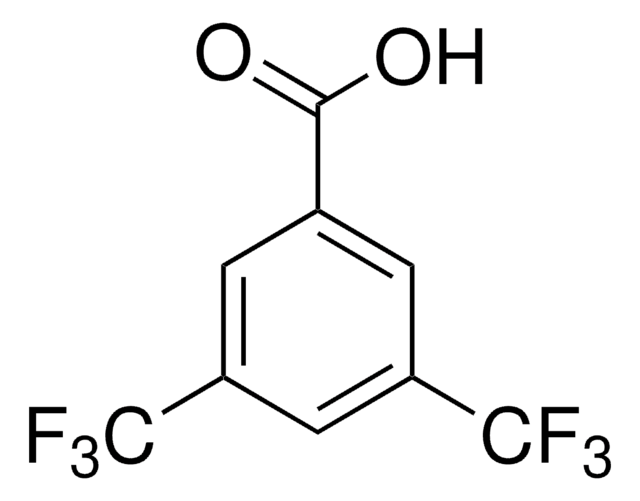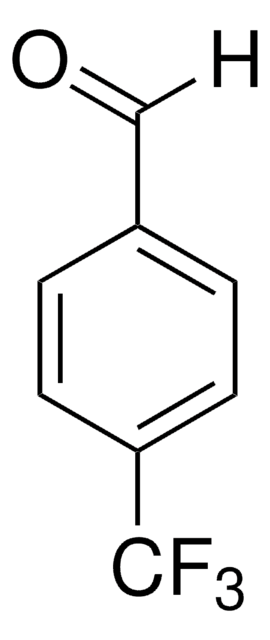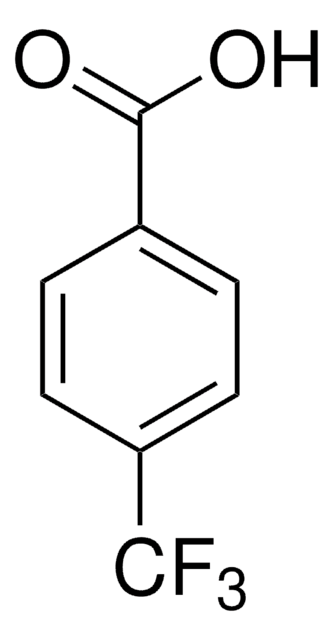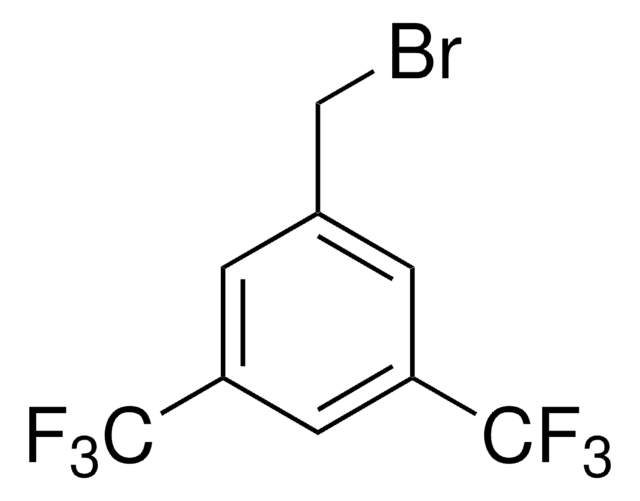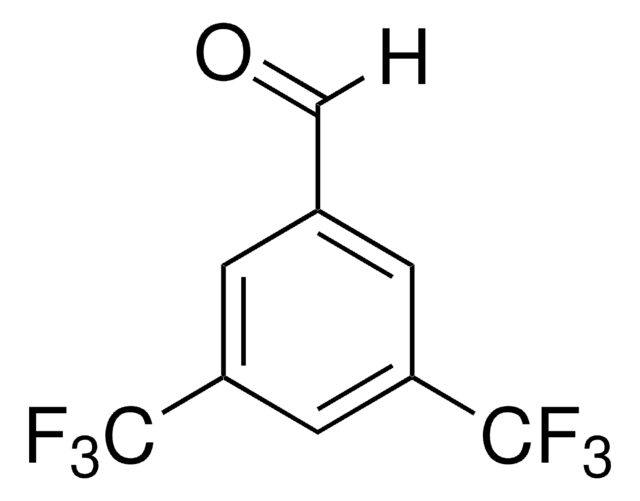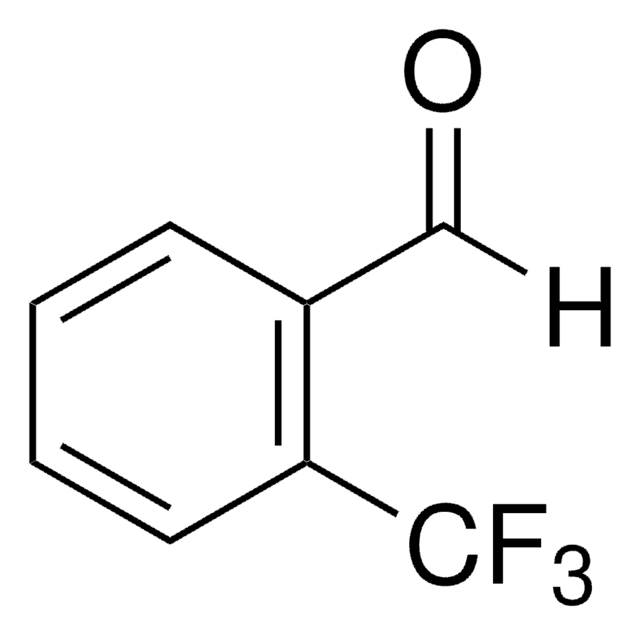All Photos(1)
About This Item
Linear Formula:
(CF3)2C6H3CH2CO2H
CAS Number:
Molecular Weight:
272.14
Beilstein:
6813447
EC Number:
MDL number:
UNSPSC Code:
12352100
PubChem Substance ID:
NACRES:
NA.22
form:
solid
Assay:
98%
Recommended Products
Quality Level
Assay
98%
form
solid
mp
121-123 °C (lit.)
solubility
methanol: soluble 25 mg/mL, clear, colorless
functional group
carboxylic acid
fluoro
SMILES string
OC(=O)Cc1cc(cc(c1)C(F)(F)F)C(F)(F)F
InChI
1S/C10H6F6O2/c11-9(12,13)6-1-5(3-8(17)18)2-7(4-6)10(14,15)16/h1-2,4H,3H2,(H,17,18)
InChI key
PAWSKKHEEYTXSA-UHFFFAOYSA-N
Looking for similar products? Visit Product Comparison Guide
Application
3,5-Bis(trifluoromethyl)phenylacetic acid has been used:
- as building block to synthesize the pentaamine and bis-heterocyclic libraries
- in determination of ionic perfluorinated substances and telomers in leachates from landfills and sediment samples
Signal Word
Warning
Hazard Statements
Precautionary Statements
Hazard Classifications
Eye Irrit. 2 - Skin Irrit. 2 - STOT SE 3
Target Organs
Respiratory system
Storage Class Code
11 - Combustible Solids
WGK
WGK 3
Flash Point(F)
Not applicable
Flash Point(C)
Not applicable
Personal Protective Equipment
dust mask type N95 (US), Eyeshields, Gloves
Choose from one of the most recent versions:
Already Own This Product?
Find documentation for the products that you have recently purchased in the Document Library.
Adel Nefzi et al.
Bioorganic & medicinal chemistry letters, 19(17), 5169-5175 (2009-07-28)
Combinatorial chemistry offers a unique opportunity for the synthesis and screening of large numbers of compounds and significantly enhances the prospect of finding new drugs. Collaborative efforts with the Tuberculosis Antimicrobial Acquisition & Coordinating Facility (TAACF), have led to the
Trine Eggen et al.
The Science of the total environment, 408(21), 5147-5157 (2010-08-11)
Landfills have historically remained the most common methods of organized waste disposal and still remain so in many regions of the world. Thus, they may contain wastes resulting from several decades of disposal and decomposition with subsequent release of organic
Our team of scientists has experience in all areas of research including Life Science, Material Science, Chemical Synthesis, Chromatography, Analytical and many others.
Contact Technical Service